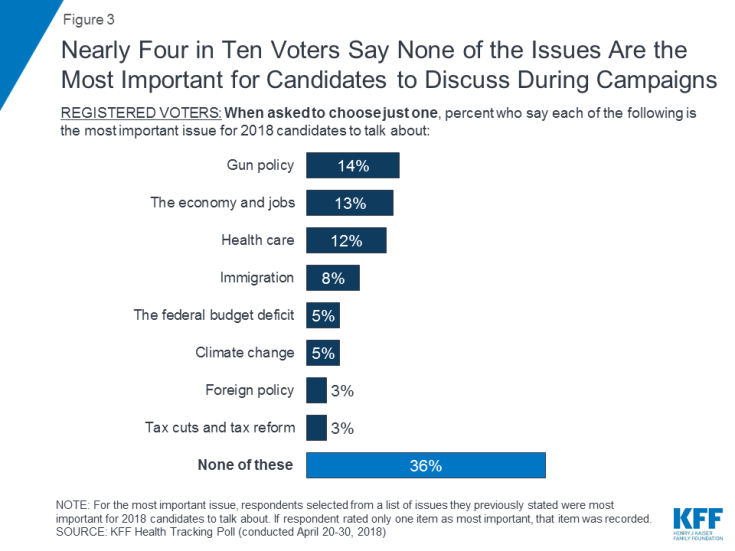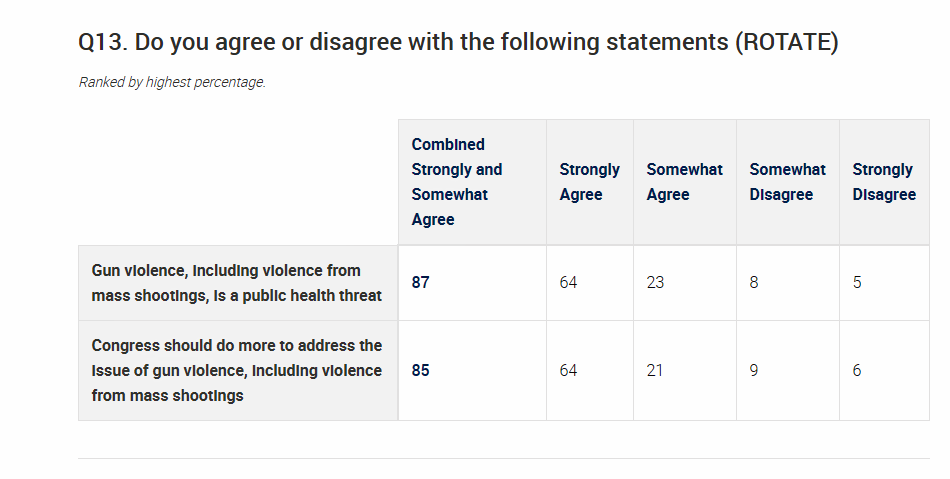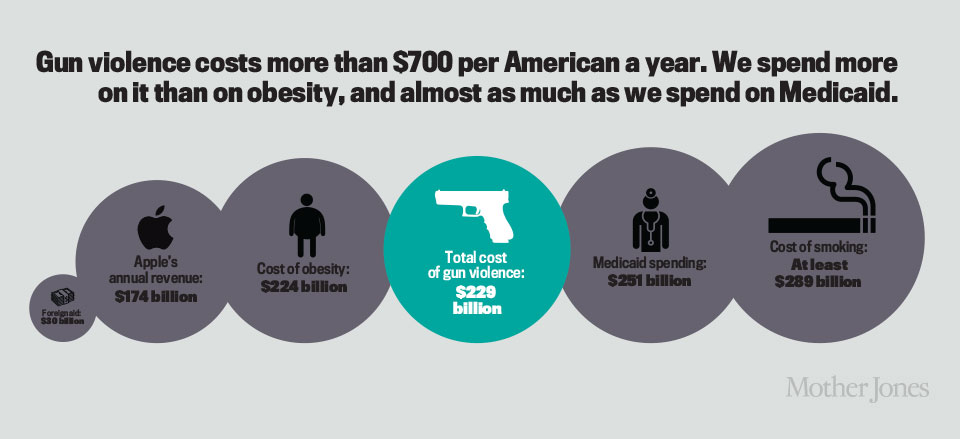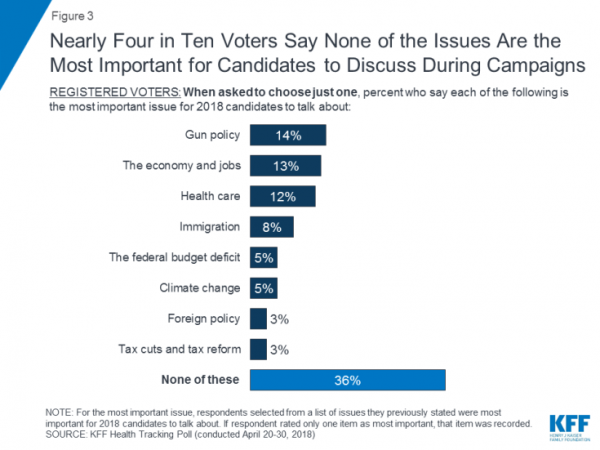 It’s a fairly even split between voting first on gun policy, jobs, or healthcare for the 2018 mid-term elections, ac
It’s a fairly even split between voting first on gun policy, jobs, or healthcare for the 2018 mid-term elections, ac
cording to the May 2018 Kaiser Family Foundation Health Tracking Poll.
Arguably, gun policy can cut in two ways: in light of the Stoneman Douglas High School shootings and wake-up call for #NeverAgain among both students and the public-at-large, vis-a-vis Second Amendment issue voters. And, as a growing public health issue, “guns” could also be adjacent to health.
“If it isn’t a health problem, then why are all these people dying from it?” rhetorically asked Dr. Garen Wintemute, professor of emergency medicine at UC-Davis and director of the Violence Prevention Research Program at the U.
Guns are a public health issue, according to a study from — wait for it — the American Psychiatric Association, published this week. Gun violence, including violence from mass shootings, is a public health issue, say 9 in 10 Americans. Furthermore, 8 in 10 Americans believe Congress should do more to address the issue of gun violence and mass shootings.
 As for jobs, through the Health Populi/THINK-Health lens, it’s all about financial wellness in U.S. households. Note that the American Psychiatric Association study also gauged growing stress in the U.S., leading to a kind of anxiety epidemic in the nation. This dovetails with similar research conducted by the psychiatrists’ behavioral cousins, psychologists, whose national association has conducted the Stress in America study for several years discovering growing stress among U.S. health citizens.
As for jobs, through the Health Populi/THINK-Health lens, it’s all about financial wellness in U.S. households. Note that the American Psychiatric Association study also gauged growing stress in the U.S., leading to a kind of anxiety epidemic in the nation. This dovetails with similar research conducted by the psychiatrists’ behavioral cousins, psychologists, whose national association has conducted the Stress in America study for several years discovering growing stress among U.S. health citizens.
The economy and personal finances can also compromise personal health. The researchers Anne Case and Angus Deaton pointed to deaths of despair in the past two years, noting an up-tick in mortality among Caucasian men age 45-54 reversing several decades of positive trends for lifespans in America. I covered this seminal, heartbreaking research here in Health Populi.
Financial stress is a social determinant of health, and as U.S. patients continue to evolve as health consumers, bearing more financial risks whether in employer-sponsored or individual health insurance plans, more Americans feel more health financed-stress.
Thus, my mantra of “the patient is the payor.”
 Health Populi’s Hot Points: The 2018 mid-term elections in America will be strongly focused on healthcare and health costs. While not the #1 issue for every U.S. voter, both Democrat and Republican likely voters say health care costs are their top healthcare issue.
Health Populi’s Hot Points: The 2018 mid-term elections in America will be strongly focused on healthcare and health costs. While not the #1 issue for every U.S. voter, both Democrat and Republican likely voters say health care costs are their top healthcare issue.
That’s because, regardless of partisan affiliation, health insurance coverage does not guarantee financial wellness. The Commonwealth Fund’s Issue Brief published October 2017 asks, “How Well Does Insurance Coverage Protect Consumers from Health Care Costs?”
The answer: not well. One-fourth of insured Americans, about 41 million people, were defined as under-insured in late 2016, double the 2003 rate when The Fund began to poll on this question. Half of under-insured adults had problems with medical bills or debt, and 2 in 5 said they did not get needed healthcare due to cost.
So having health insurance in itself isn’t a guarantee to ensure patients’ financial health.
 But even being health insured won’t save health citizens from the risks of a mass shooting, which economically speaking, accounted for $229 billion in health spending in 2015, Mother Jones calculated. That’s more per capita spending than for obesity, and nearly equal to Medicaid spending.
But even being health insured won’t save health citizens from the risks of a mass shooting, which economically speaking, accounted for $229 billion in health spending in 2015, Mother Jones calculated. That’s more per capita spending than for obesity, and nearly equal to Medicaid spending.





 Thanks to Feedspot for naming this blog, Health Populi, as a
Thanks to Feedspot for naming this blog, Health Populi, as a